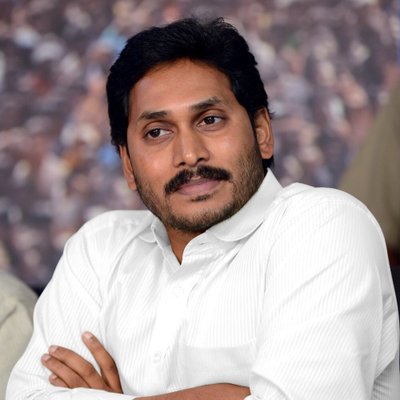YSRCP MP's bear Jagan gag order with a pinch of salt
By Jinka Nagaraju
Hyderabad: The rise of regional parties was once hailed as a revolutionary change in Indian politics. It is often said with this phenomenon, politics was getting localized as a result of which the ever eluding regional aspirations of multi-ethnic India were gaining a voice.
Today, regional satraps are patronised because of various factors, each of which each nearly assures gains in the political sweepstakes. With coalition governments having taken concrete shape, and here for long, there is no denying that in most States, they are either kings or kingmakers. In the past three decades, many regional parties have successfully lived up to the aspirations of people of their regions.
However, there is a twist to the tale. Some regional parties have given birth to their own political culture, mostly dictatorial and hegemonic. All regional parties in India without any exception are personality-oriented and promote dynastic politics.
The parties have reduced the legislators to non-entities or as five-year contract employees. The elected members of the regional parties have been denied the relative freedom their contemporaries from national parties enjoy.
The bosses of regional parties, more often, love to convey this message to remind the MPs or MLAs of their vulnerability.
Chief Minister YS Jaganmohan Reddy, who is also the boss of YSRCP, is believed to have conveyed this message to the MPs in the parliamentary party meeting last week, in no uncertain terms. Jagan has reportedly enforced strict discipline and told them unequivocally that they are not supposed to meet or greet any Union Minister unaccompanied by a fellow-party leader. The MPs have to consult one of the three pillars of the party-Vijay Sai Reddy (Rajya Sabha MP) or Sajjala Ramakrishna Reddy (adviser to the government, public affairs) or YV Subbareddy (TTD chairman) and discuss the purpose of the appointments with ministers both at the Centre and the State.
In a meeting in Delhi, a senior MP is said to have raised an objection to this bizarre instruction, which has not gone well with the MPs. Nobody knows what shape it would take if the leadership were to enforce it with an iron hand.
One cannot simply brand all MPs as non-entities. Some did enjoy enough social standing because of their services before joining the party. They claim that the social capital they earned was the reason for Jagan to field them from their constituencies. In their view, certain issues they want to take up with the Union Ministers cannot be discussed with the party boss. They too require a modicum of privacy. And everybody knows how much money each MP spent during electioneering. If they are not allowed to bask in the commensurate glory, what is the fun of having got elected to the Parliament goes the argument?
A couple of MPs felt quite annoyed by the diktat. When the House is in session, ministers are easily available and accessible. Whose permission does a member need to meet or greet a minister? Do ministers take members seriously if they face such restrictions? How will they address the problems of their constituencies involving the Union Government like toll gates, railways, roadways, telecom, tribal welfare, SC welfare, petroleum and education, among many more? The suggestion that they should share MPLADS funds with MLA s has also not gone down well with the MPs.
While it is an undeniable fact that many of the MPs were nothing before they got elected to the august House, it is equally unjustifiable to rob them of the privileges a MP status earns them.
Though it looks innocuous to ask MPs to take along high-profile functionaries whenever they want to meet the union or state ministers, it is not practically feasible. The instructions from the party leadership have become a point of hot debate among the MPs of other parties as well. However, the ruling party Members of Parliament have no option but bear the predicament, as of now.